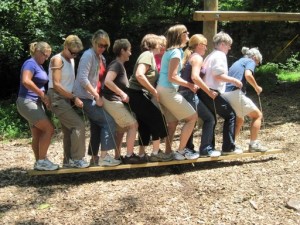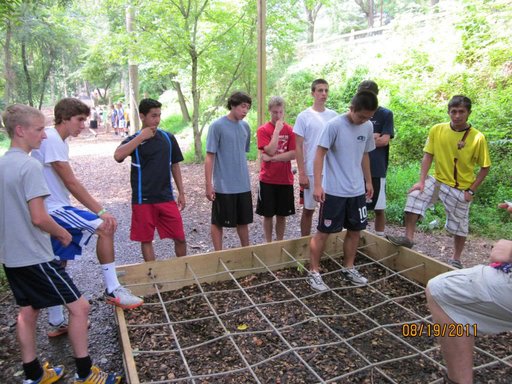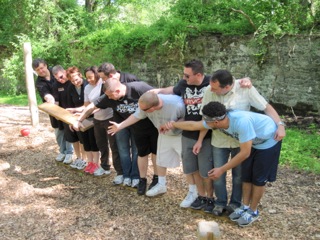 Problem solving: Google defines the phrase as “the process of finding solutions to difficult or complex issues.” The key word here is “process.” As the old saying goes, there is more than one way to skin a cat. And there is no one way to solve a problem. You need to think outside the box. You need to look at a situation and realize it’s not black and white. There are multiple ways to go about problem solving.
Problem solving: Google defines the phrase as “the process of finding solutions to difficult or complex issues.” The key word here is “process.” As the old saying goes, there is more than one way to skin a cat. And there is no one way to solve a problem. You need to think outside the box. You need to look at a situation and realize it’s not black and white. There are multiple ways to go about problem solving.
Unfortunately, not everyone is a great problem solver. The good news: problem solving is a skill, not an inherent trait. And, like all skills, problem solving can be learned and developed. Even good problem solvers can benefit from a little refresher.
Become a Better Problem Solver on the Challenge Course
There are some things you just can’t learn in a textbook, like problem solving.
According to researcher Marie Siobhan Breheny, author of the study “Investigating the Effects of a Low Ropes Course Experience vs. Classroom Instruction on the Problem Solving Appraisal of College Freshman,” the only way to truly become a great problem solver is to get out there and practice. What we’re talking about is Adventure-Based Education, also known as experiential learning.

Breheny sought to compare low ropes course experiences vs. classroom training in terms of problem solving self-appraisal, specifically that of college freshman. Breheny studied 39 volunteers from the Florida Institute of Technology (1998 freshman class), testing Total Problem Solving Inventory (PSI), as well as each of its three component scales (Approach-Avoidance Style, Problem-Solving Confidence, and Personal-Control). Subjects were pre-tested the week prior to the study to establish a baseline. They were then randomly split in two groups. Group I received a four-hour classroom lecture emphasizing a process approach to problem solving, while Group II spent four hours on the ropes course, focusing on problem solving.
Subjects were post-tested two to six days following the study. This showed a positive change in Total PSI, as well as Problem-Solving Confidence, and Personal-Control following the ropes course experience. Subjects were post-tested again 10 weeks later and the positive changes remained.
While this study was focused on college freshman, the results are universal. There are significant advantages to adventure-based learning vs. classroom learning – advantages that can be utilized by business owners and management. As John Dewey, the Father of Experiential Education, famously said in 1938, a quote we share often, “There is an intimate and necessary relation between the processes of actual experience and education.”
Adventure-based education or experiential learning seeks to educate participants not through reading, not through lectures, not even through classroom work, but through actual experiences. Essentially, the main concept behind experiential learning is that you need to get out of the office and work on the concepts in order to enact real, lasting change – Team Building on the challenge course.

“I love having my students engage in adventure-based learning opportunities [on the challenge course],” said Jim Cain, Ph.D., teacher and author of 14 team and community building texts. “The day we spend at the challenge course is always one of the most beneficial and enjoyable days of the school year.”
Book Your Challenge Course Session & Experience the Difference for Yourself
 Terrapin Adventures, which is conveniently located in Howard County, Maryland, between Baltimore and Washington DC, specializes in team building via adventure-based learning. Our experienced staff is able to create a custom team building program– onsite or offsite, indoor or outdoor – that is designed to help your group increase their ability to problem solve, think creatively and collaborate with one another.
Terrapin Adventures, which is conveniently located in Howard County, Maryland, between Baltimore and Washington DC, specializes in team building via adventure-based learning. Our experienced staff is able to create a custom team building program– onsite or offsite, indoor or outdoor – that is designed to help your group increase their ability to problem solve, think creatively and collaborate with one another.
“Teamwork gets the job done. Getting to know more about our teammates under stress helps us adjust ourselves. Constant two-way communication among team members solves problems quicker.”
– Participants from University of Maryland, Facilities Department, Capital Projects Group
“Our group had a terrific time at your facility. Overall the students thought that the activities were engaging, challenging, and helped them to work together to problem solve.”
– Tonnet R., Greenmount School
Schedule Your Corporate Team Building Session!
According to researchers Deborah Diazgranados, Cameron Klein, Eduardo Salas, Huy Le, C. Burke, Rebecca Lyons, and Gerald Goodwin, “Results (based on 60 correlations) suggest that team building has a positive moderate effect across all team outcomes,” specifically role clarification, goal setting, interpersonal relations, and, of course, problem solving. Team building allows you to tackle problems head on and explore new and unique ways of problem solving, encouraging your team to start looking outside the box and examining exciting and effective ways to approach everyday challenges in the workplace.
If you have any questions, please call Terrapin Adventure at 301.725.1313, or email us at info@terrapinadventures.com to learn more.
